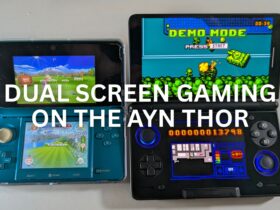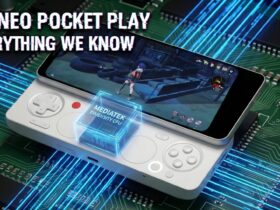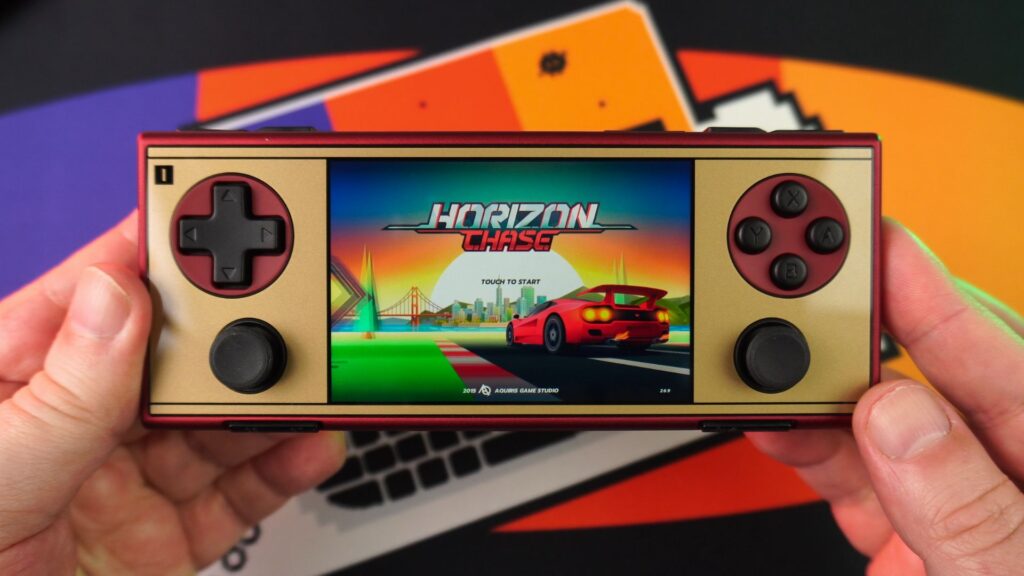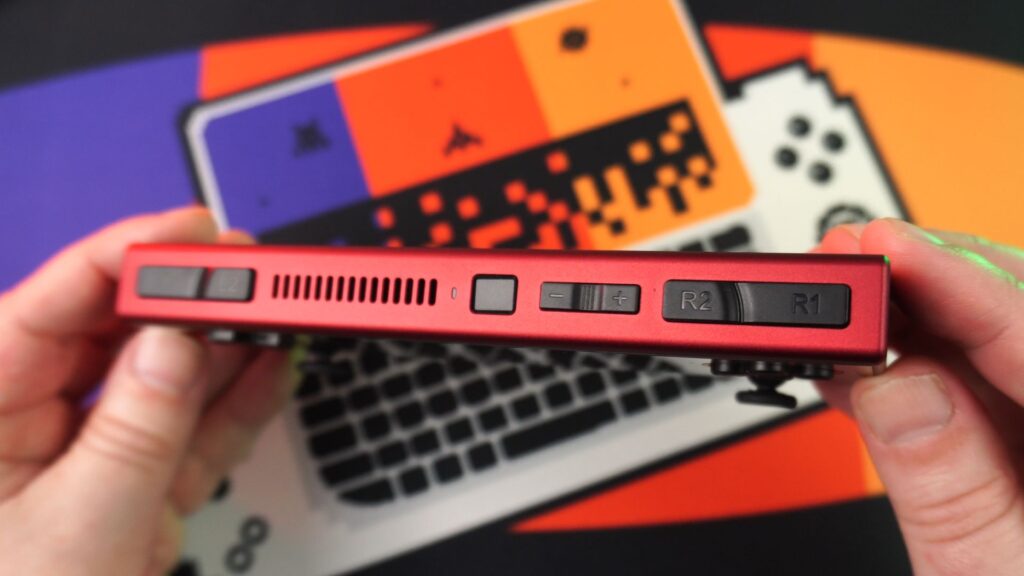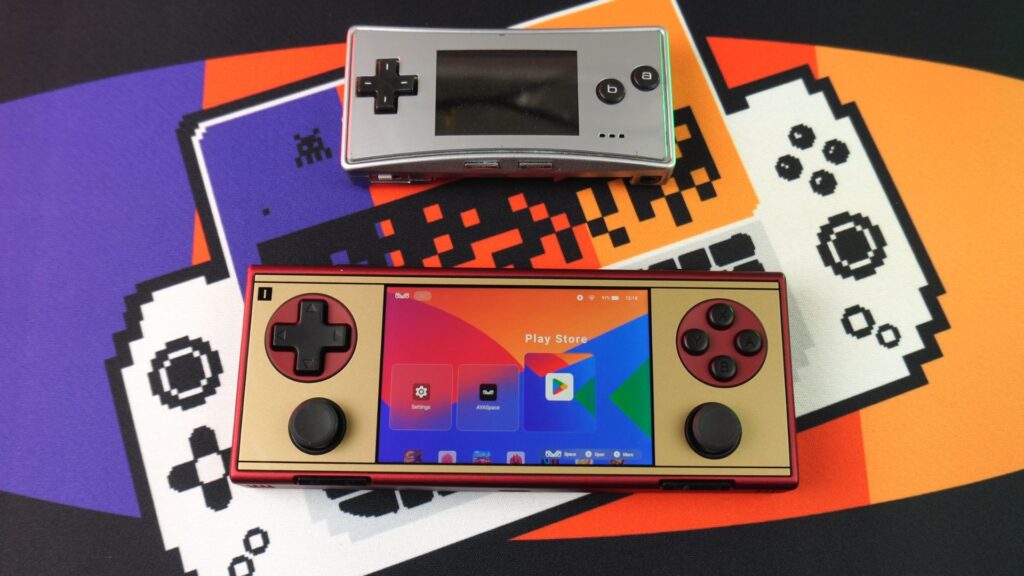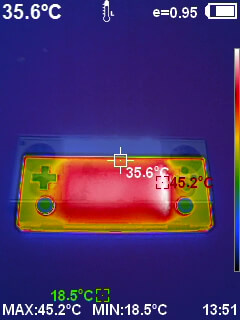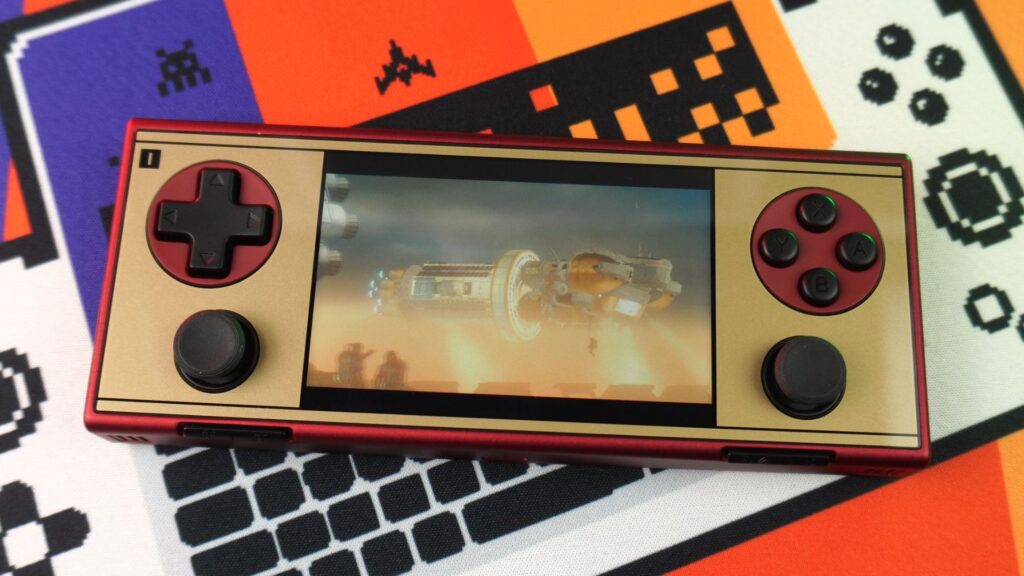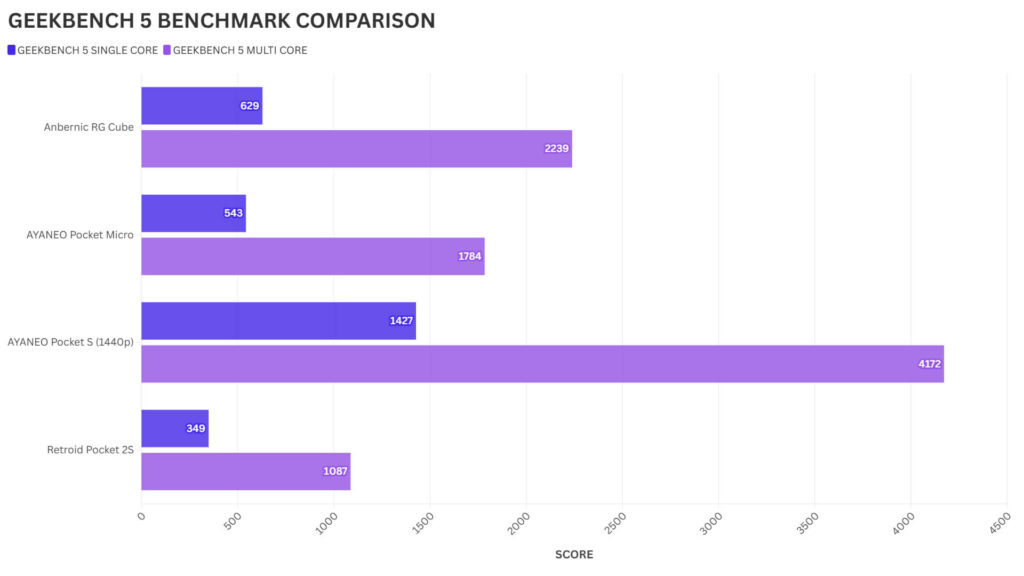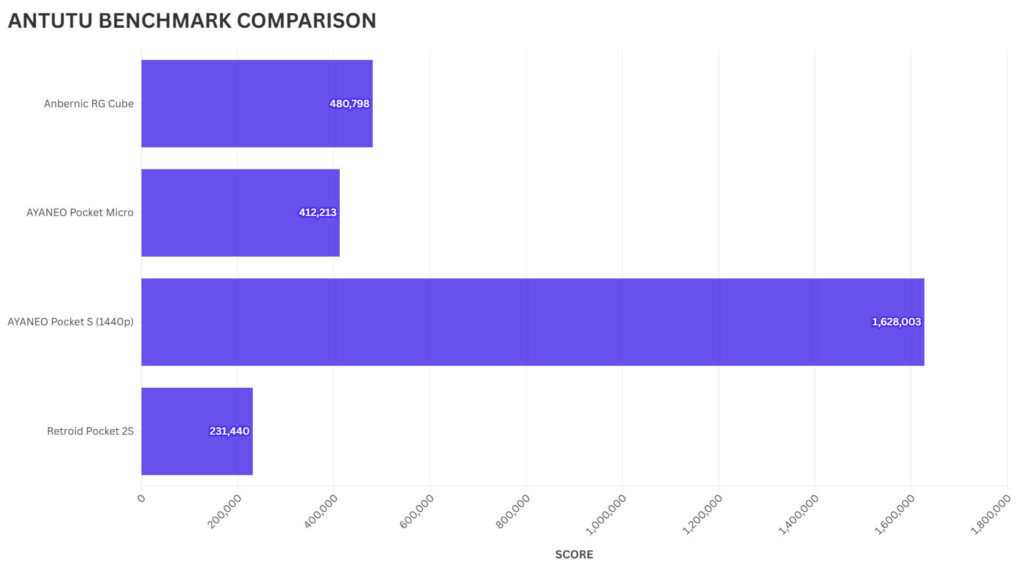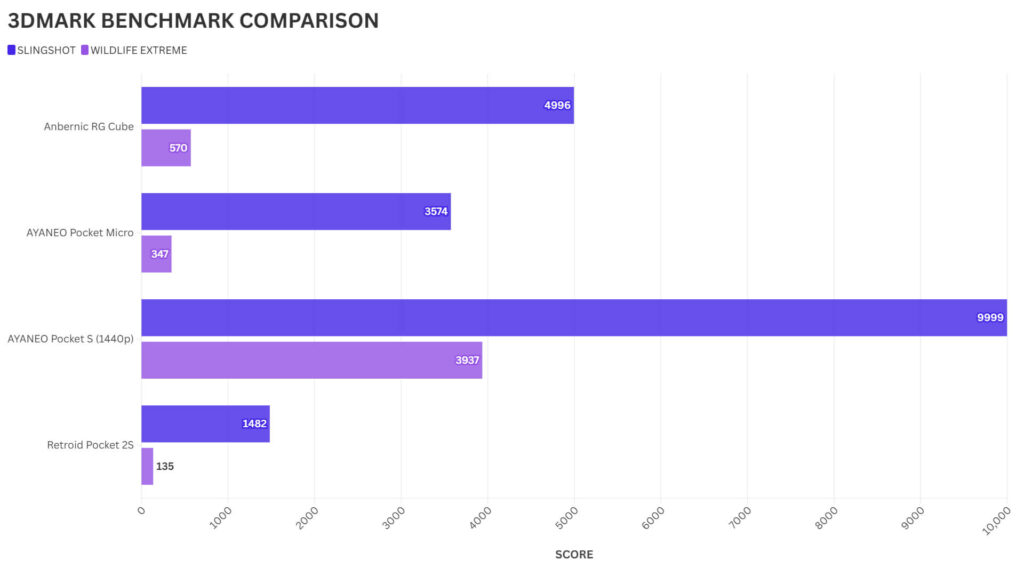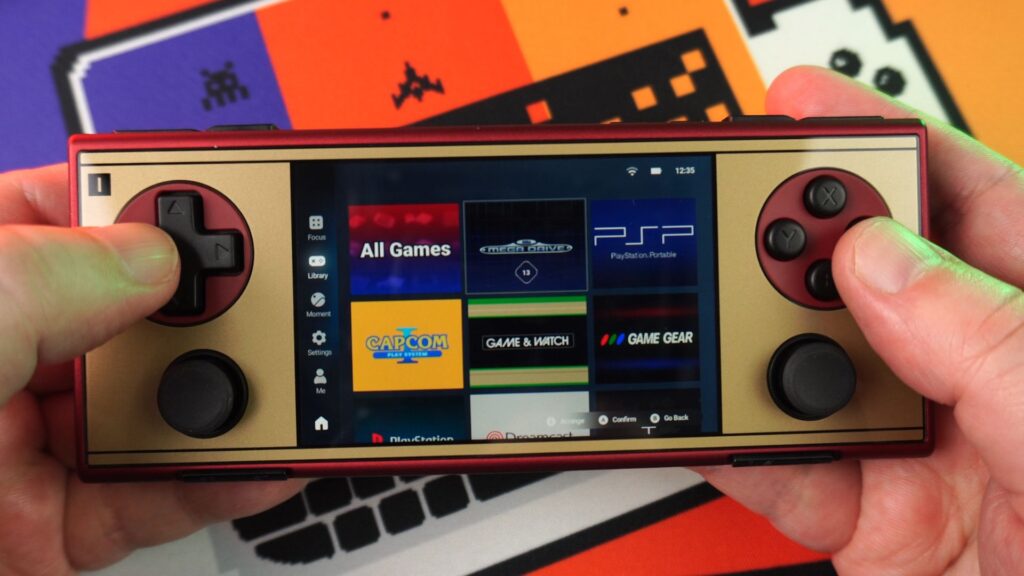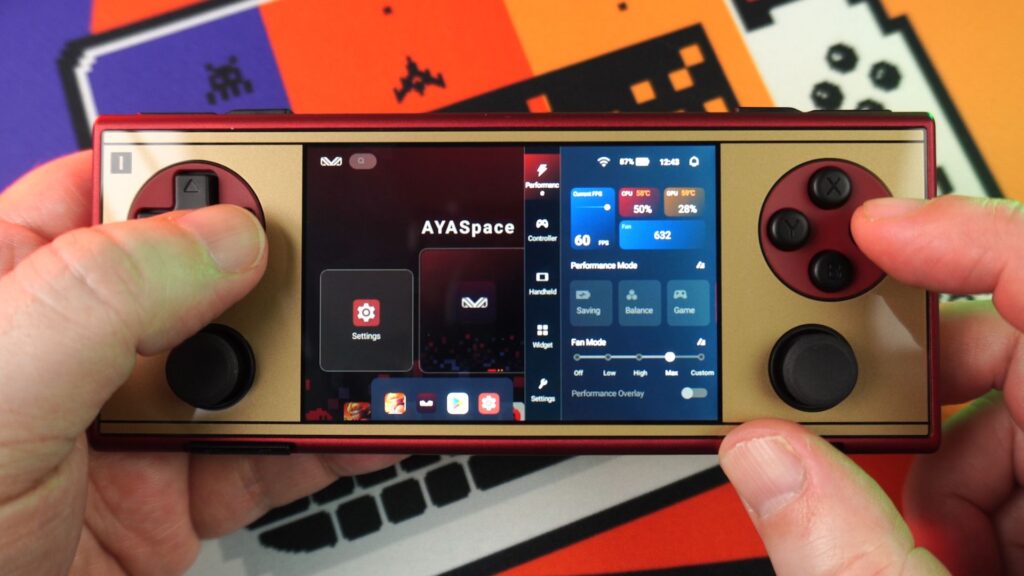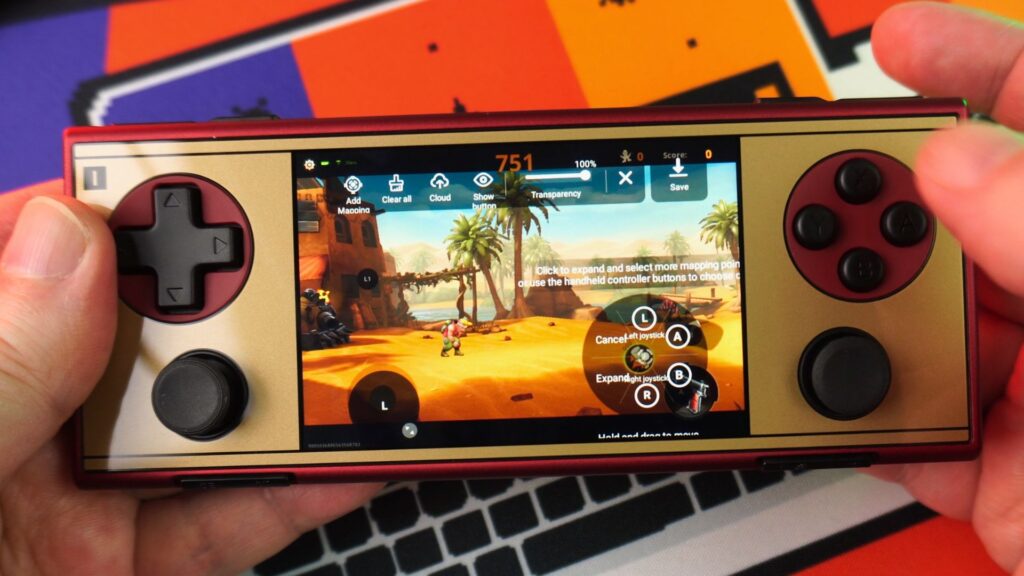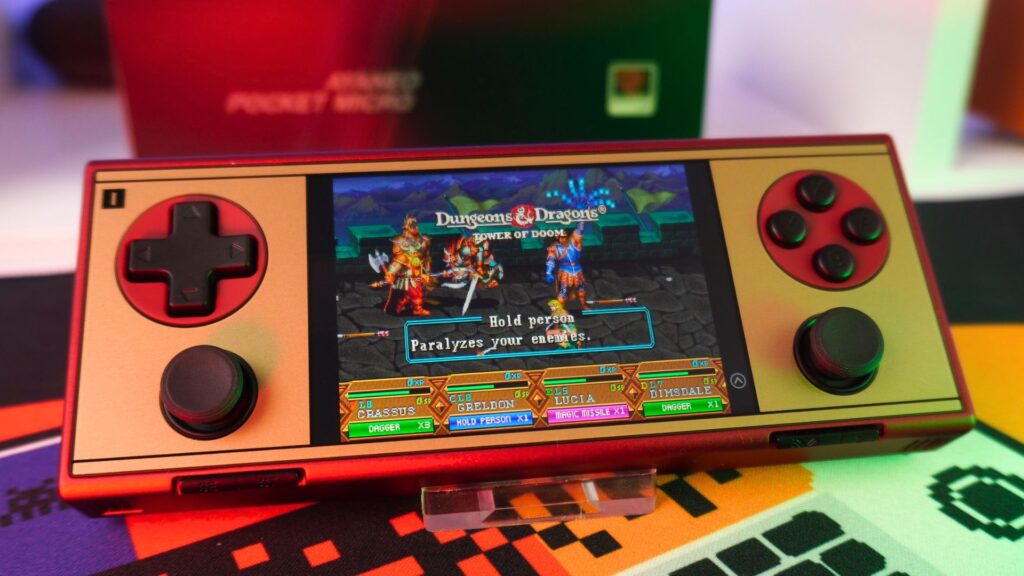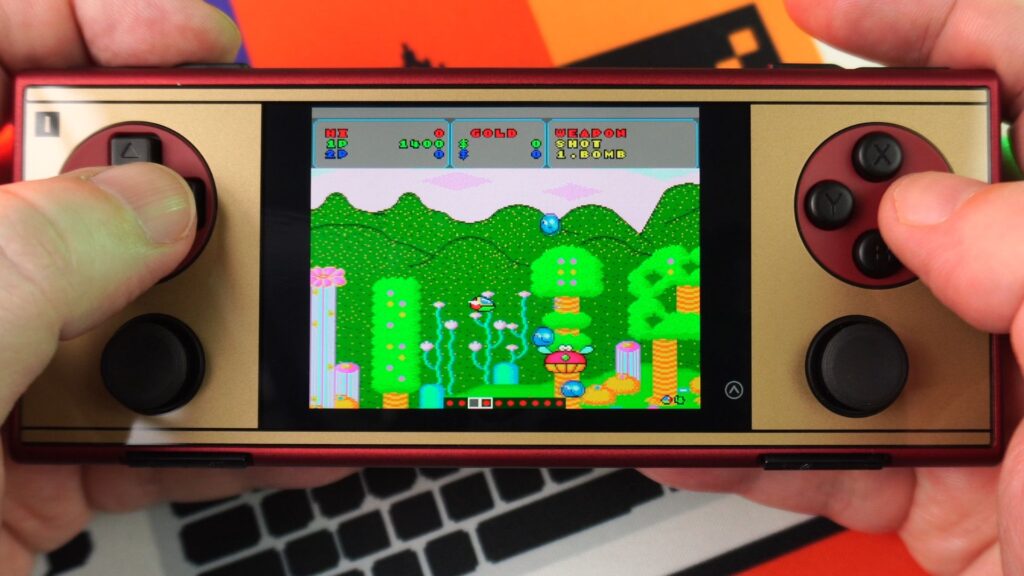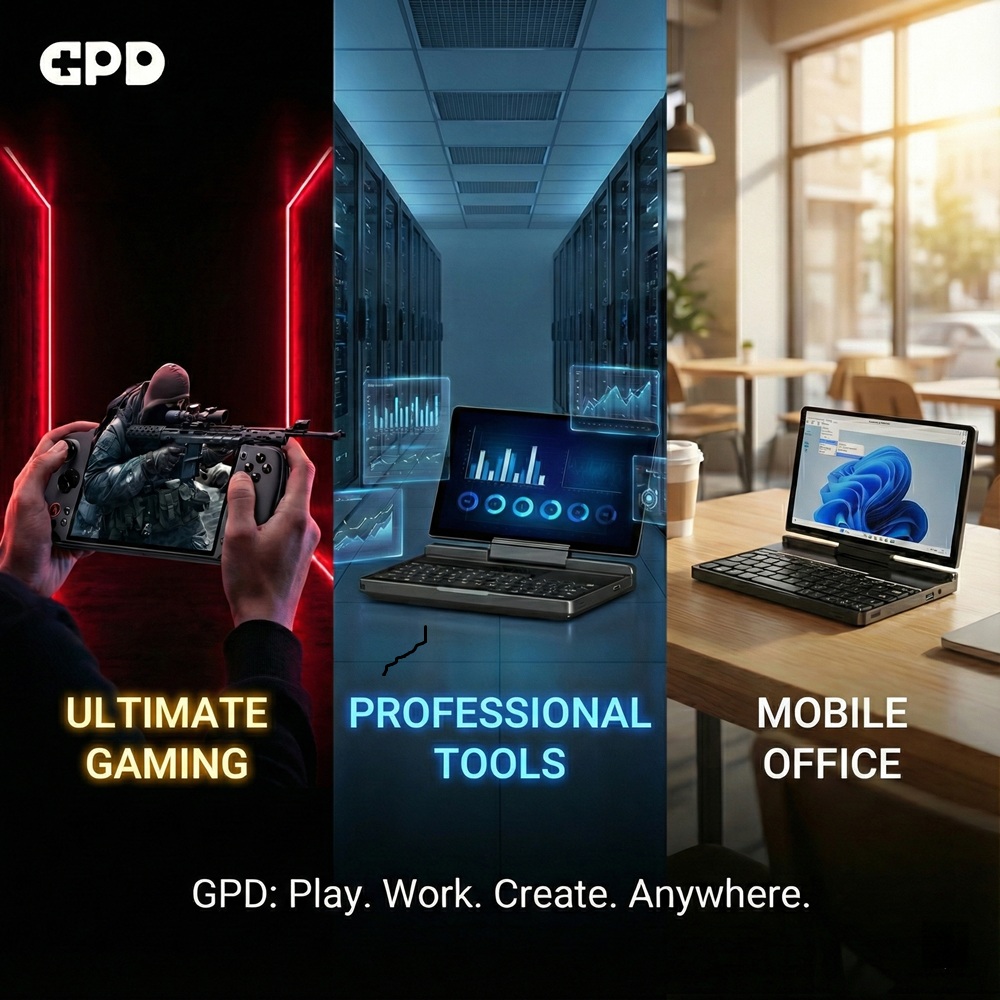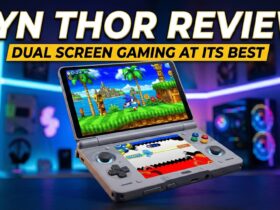AYANEO Pocket Micro Review
-
Design
(5)
-
Build Quality
(5)
-
Display
(4.5)
-
Performance
(4.5)
-
Features
(4)
-
Software
(4.5)
Summary
Overall
4.6User Review
( votes)Pros
- Premium building quality with CNC aluminium alloy shell
- Compact & Portable
- Impressive emulation performance
- AYANEOs custom software
- Hall effect joysticks
Cons
- Lack of 3.5mm headphone port, with strange choice of USB port usage
- The 3.5″ display may be too small for some users
The AYANEO Pocket Micro, inspired by the Gameboy Advance Micro, brings Android based gaming to a small form factor gaming handheld with an AYANEO twist. Let’s find out our AYANEO Pocket Micro review if it deserves your money as we check out its features, check the system, gaming and emulation performance and compare with other Android based handhelds.
AYANEO Pocket Micro Review Video
AYANEO Pocket Micro Overview
We start our AYANEO Pocket Micro review with an overview of the Android gaming console. The AYANEO Pocket Micro measures 6.1 x 2.4 x 0.7 inches (15.6 x 6.3 x 1.8 cm) and weighs 233g (0.51 lbs). The shell is aluminium alloy which gives it a very solid premium feel and does feel heavier than it looks. At this size it’s pocketable, though you may want to keep this in a jacket pocket or bag due to the analogue sticks.
The display is a 3.5 inch borderless IPS touchscreen with a 960×640 resolution. This is exactly four times the resolution of the original Gameboy Advance.
We have the usual gaming controls with hall effect analogue sticks. On the bottom left and right edges are two pairs of buttons for SELECT and START, AYA Overlay and Home.
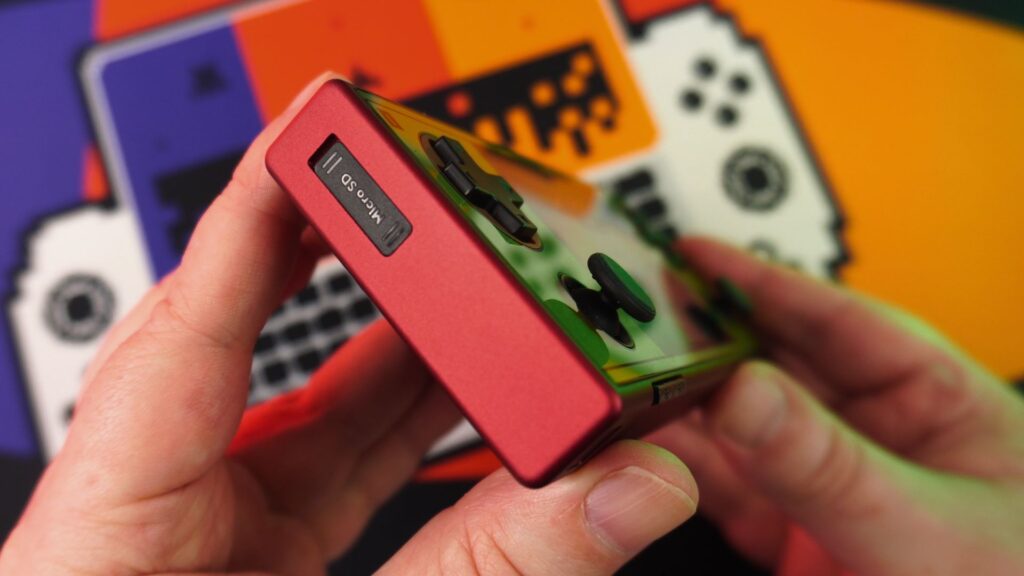
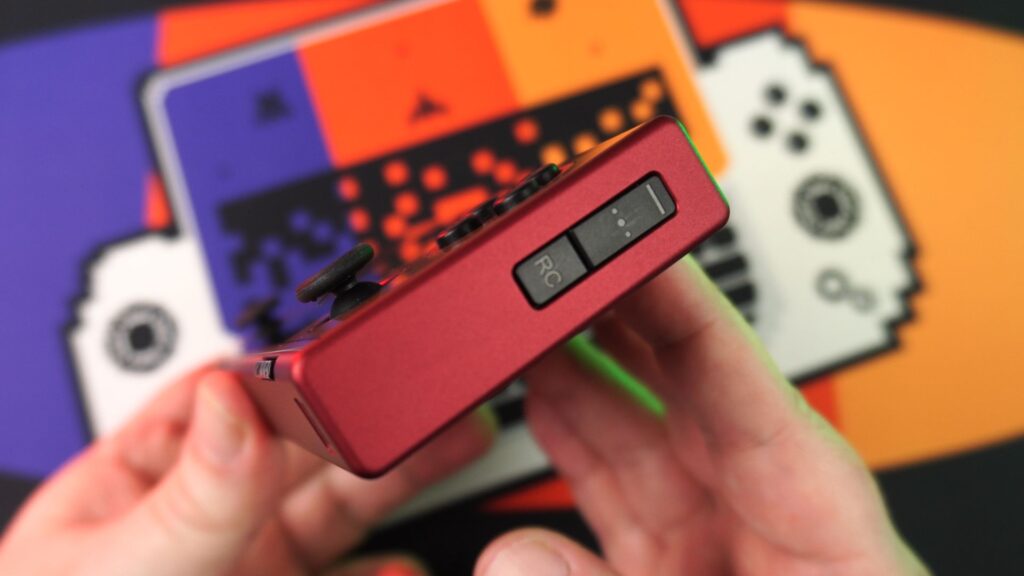
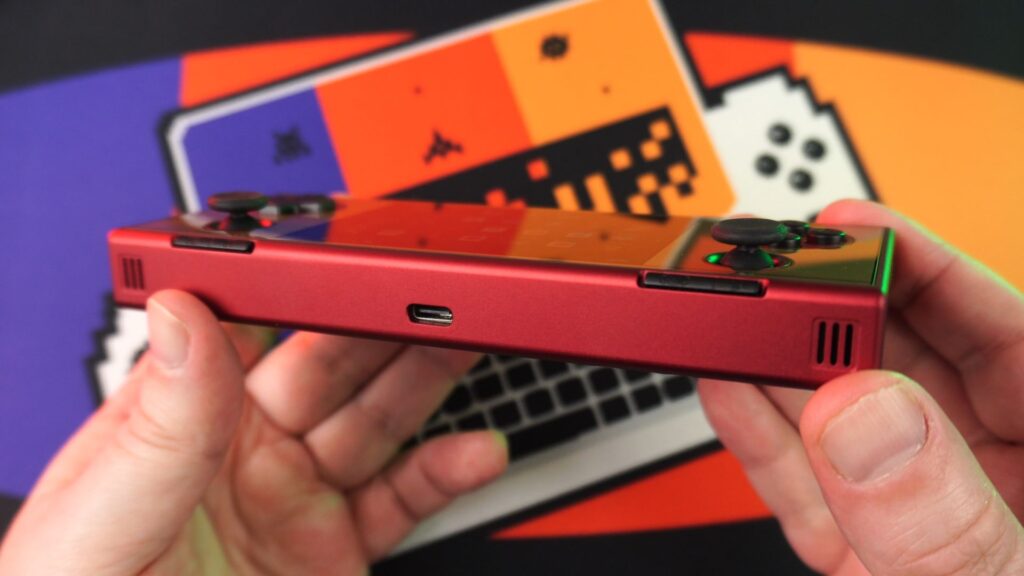
The bottom has a USB Type-C port supporting USB 2.0 OTG. We will discuss this further in a moment. The left side has a covered Micro SD card reader., and the right side has some macro buttons.
The top has a pair of shoulder and trigger buttons on either side. And off centre to the right are a power button with integrated finger print scanner, and volume buttons.
I thought I had the red and gold GBA Micro for comparison, but turns out I had the Silver one 🙂 You can see some inspiration in the shape and with the SELECT and START buttons on the curved sides. Like the AYANEO Pocket DMG, it’s not intended to be a replica, but more of an inspired design.
The AYANEO Pocket Micro USB Port
We wanted to mention the USB Type-C port as we found it a little strange. The USB port can be used for charging the Micro as standard. But if you wanted to connect a USB flash drive or use a Type-C to 3.5mm audio jack then you first need to switch off the internal gamepad via the settings.
This means using external storage or wired headphones while playing a game is not possible, as the gamepad is switched off. There is no 3.5mm audio port like you find on just about every Android gaming device. You can of course use Bluetooth headphones without any issue, but we found the whole setup a bit disappointing. I see people every day that are still using wired headphones with their phones and handhelds.
AYANEO Pocket Micro Technical Specifications
Next in our AYANEO Pocket Micro review we go over the technical specifications as well as running our own battery life, fan noise and temperature tests.
| CPU | MediaTek Helio G99 2x Arm Cortex-A76 up to 2.2GHz 6x Arm Cortex-A55 up to 2.0GHz |
| GPU | Arm Mali-G57 MC2 |
| RAM | 6GB LPDDR4x 8GB LPDDR4x |
| STORAGE | 128GB UFS 2.2 256GB UFS 2.2 |
| COMMUNICATIONS | Wi-Fi 5 Bluetooth 5.2 |
| DISPLAY | 3.5″ borderless IPS touchscreen 960×640 resolution 330 PPI 400 nits 3:2 screen ratio 100% sRGB coverage / 115% sRGB volume |
| DIMENSIONS | 6.1 x 2.4 x 0.7 inches (15.6 x 6.3 x 1.8 cm) |
| WEIGHT | 233g (0.51 lbs) |
Powering it is a 2,600mAh rechargeable battery. To test the battery life, we ran Antutu benchmark on a loop, at full brightness with the Performance mode setting. We got a battery life of 3 hours. Average battery use will be up to 6 hours depending on what apps you are running.
In our fan noise and temperature tests, also performed while running Antutu, we had to put our ear up to the fan grill to actually hear if the fan was spinning. You would not be able to hear the Android gaming console in an average office area, and even in a quiet room it’s hard to hear anything. For temperatures we got 46°C, mainly coming from the display rather than the exhaust grill.
System Benchmarks
As always with Android gaming handhelds we run a few benchmarks to find out its performance and also compare it with other handhelds as part of our AYANEO Pocket Micro review. Unfortunately we didn’t have any other G99 devices, so we have included some similar popular performing devices as well as AYANEO’s premium priced and performance Pocket S handheld.
Geekbench 5
Geekbench 5 tests the CPUs single and multi-core performance. Compared with the far lower priced Retroid Pocket 2S and similarly priced RG Cube we see around the expected performance. Far higher than the Pocket 2S at 43% difference, and below the Anbernic RG Cube with a 14% difference on single core performance.
Geekbench 6
For Geekbench 6 we unfortunately do not have scores for the Pocket 2S. But we can see around a 16% difference in performance between the RG Cube and AYANEO Pocket Micro for single core, and around 19% for multi-core.
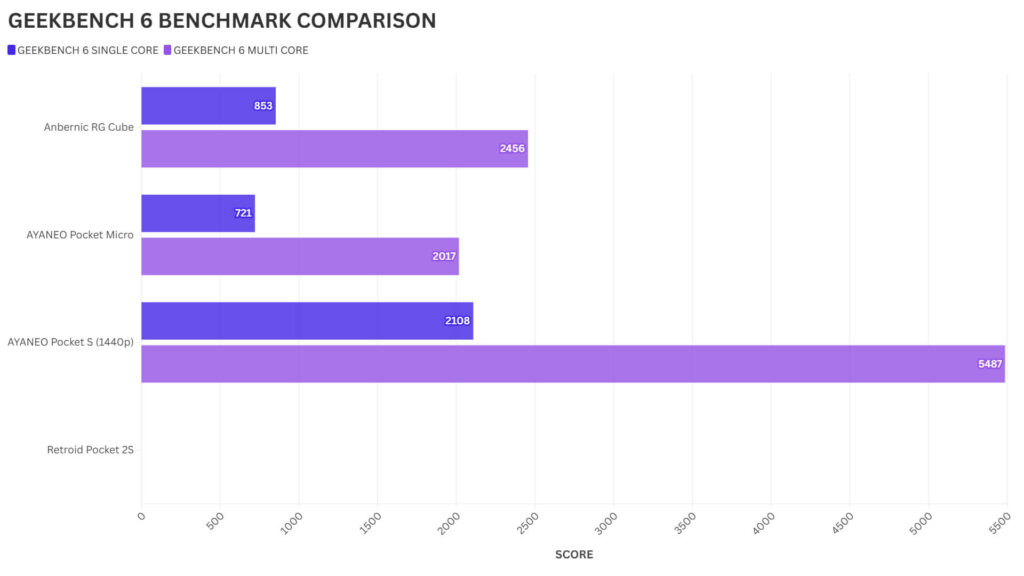
Antutu
With Antutu which performs a variety of tests for everyday use of an Android device, we again see the Pocket Micro in the middle of the three. There’s a 56% difference increase compared to the Pocket 2S and 15% difference compared to the RG Cube.
3DMARK
And on our final test with 3DMARK. On Slingshot we see decent increases in performance over the 2S, but a larger 33% difference with the RG Cube. And for the Wildlife Extreme benchmark we again see a good difference between the Pocket 2S and around a 48% difference to the RG Cube.
Benchmark Summary
Overall we see good scores for the AYANEO Pocket Micro. It outperforms the Retroid Pocket 2S which has a 35% lower difference in price, but we see the Anbernic RG Cube come out on top with higher performance and a lower cost of around 15% difference. The RG Cube may be lower cost and higher performance, but the overall quality is not premium, unlike the AYANEO Pocket Micro Android gaming device.
AYANEO Pocket Micro OS Overview
Continuing our AYANEO Pocket Micro review we take a brief look at the OS and included software on the gaming Android handheld. The AYANEO Android handheld runs Android 13 OS and comes fairly bare bones with the usual Android apps including the Google Play Store and AYANEO’s custom Home software.
With the AYA Home software you have access to a frontend for games as well as a range of settings for the OS and device. You will need to set up the game ROM frontend which can take a little time but is worth it.
And with the AYA Overlay, with a swipe of your finger you have easy access to a bunch of information such as the FPS, temperature and fan speed. As well as shortcuts to change performance modes, controller settings and more.
Like AYANEO’s other handhelds, their software gives a more premium look and usage than other manufacturers such as Anbernic, AYN and Retroid.
Android Games
We tried some gaming Android handheld as part of this AYANEO Pocket Micro review, With the lower performance processor compared to say the AYANEO Pocket S you can still play a decent number of games.
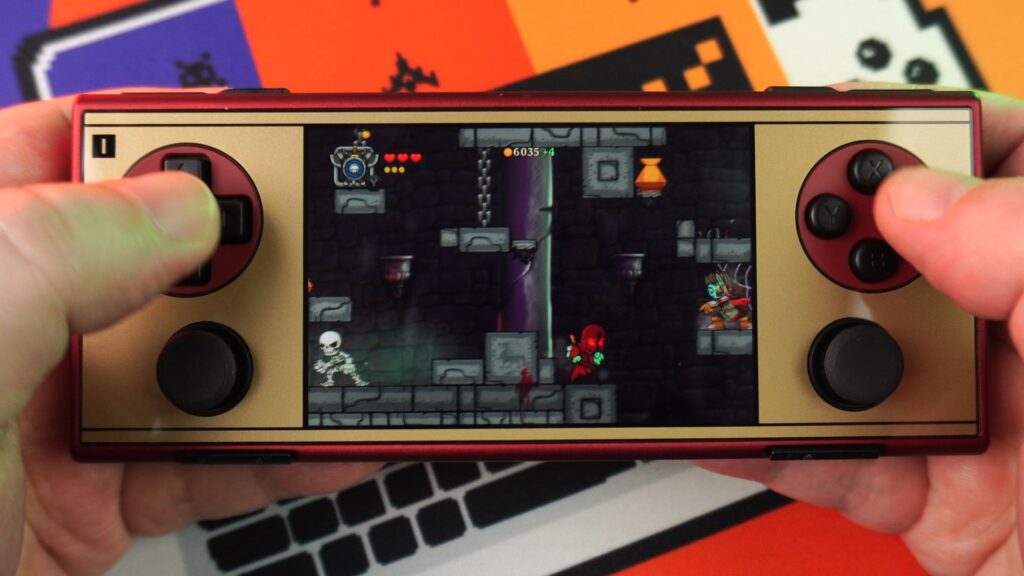
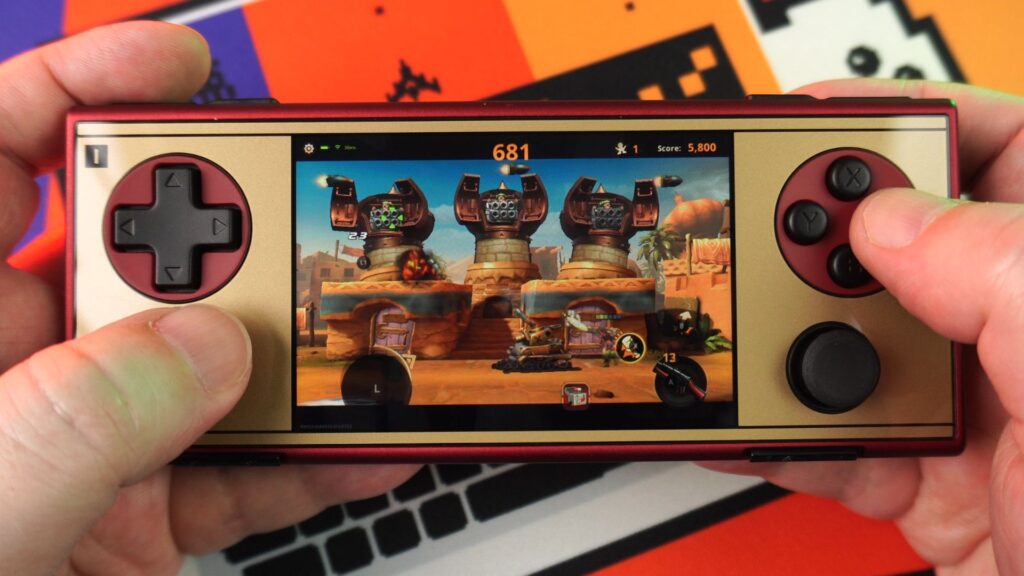
And for games that are not controller compatible, you can use the built in screen-mapping software. Access it from the overlay and simply drag the icons to their respective on screen areas you want to simulate screen presses with. It is quick and easy to set up and use as it should be.
Emulation Performance
Next in our AYANEO Pocket Micro review we tested emulators for both older and newer systems. We were actually very surprised by the emulation performance for the AYANEO Pocket Micro. Going by the processor performance we had a general expectation of what emulators would run well. But keep watching for some impressive results.
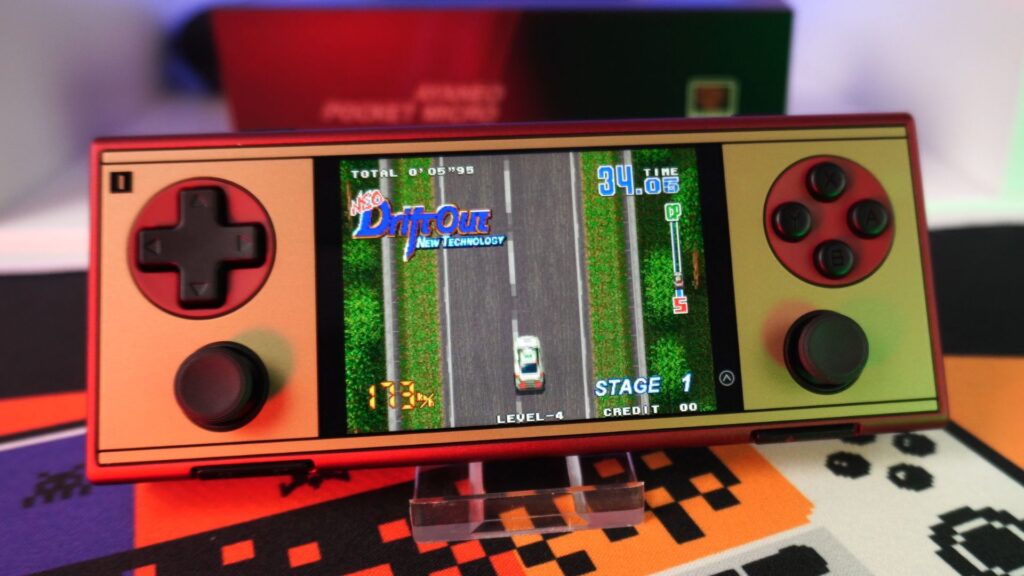
Naturally all of your 8, 16 and 32bit consoles, computers and handhelds are going to run great. Where possible you can increase rendering resolution and add graphics enhancements etc.
PPSSPP
PPSSPP is a great emulator and we were able to set the rendering resolution to 3x, with no frame skipping, 16x anisotropic filtering and some other tweaks on God Of War. We got a solid 60 FPS which is great to see.
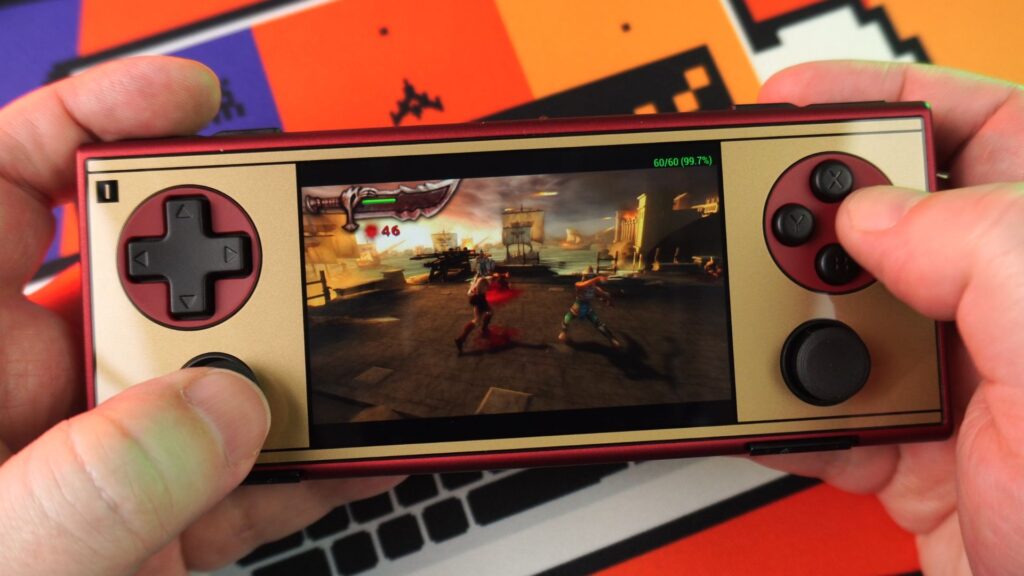
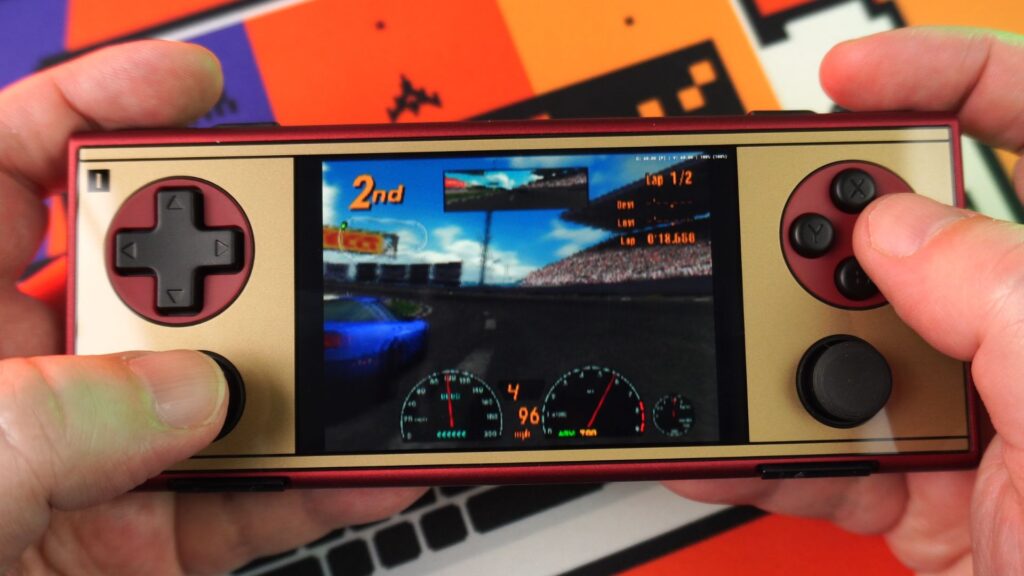
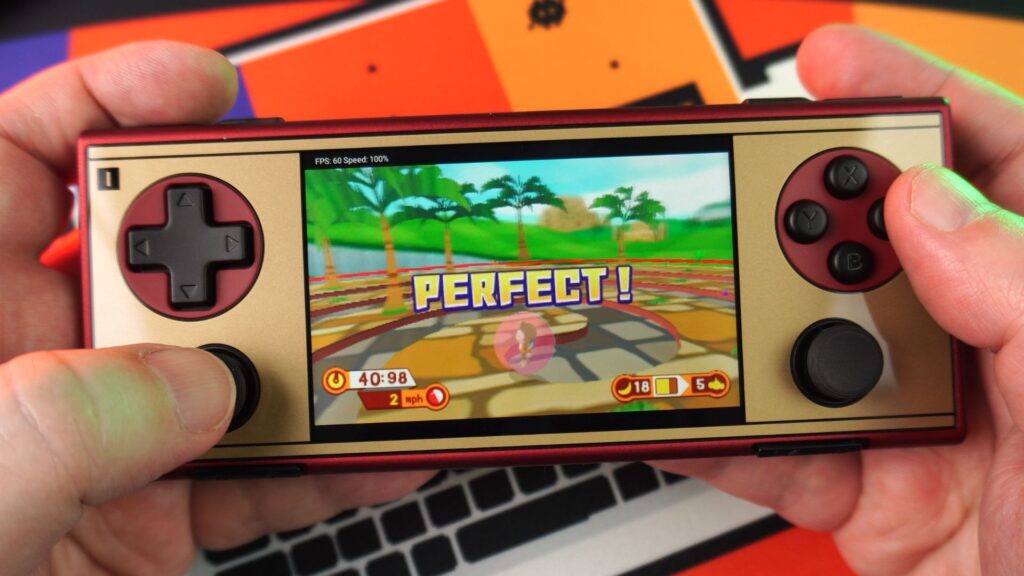
AetherSX2
On Aether SX2, our go to game OutRun was sadly unplayable even at half rendering resolution. We had better luck with Gran Turismo 3 at half rendering resolution. Depending on how demanding the game is you can go up to .75 or 1x resolution on lower ones.
Citra
We got decent results on the Citra emulator. We tried a bunch of games and many were perfectly playable. There are some drops in frames and shader cache lags in more demanding games, but overall they were playable afterwards!
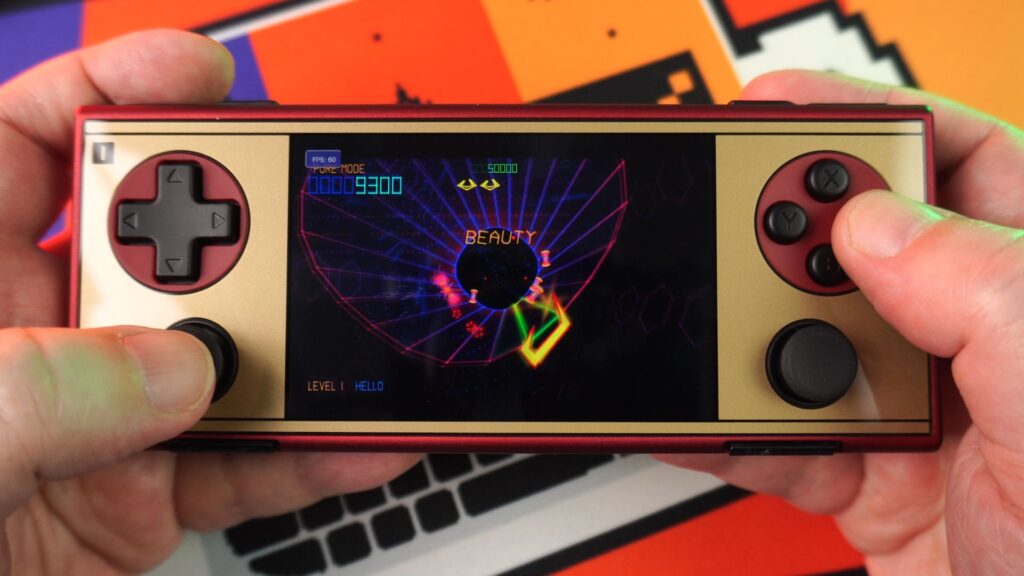
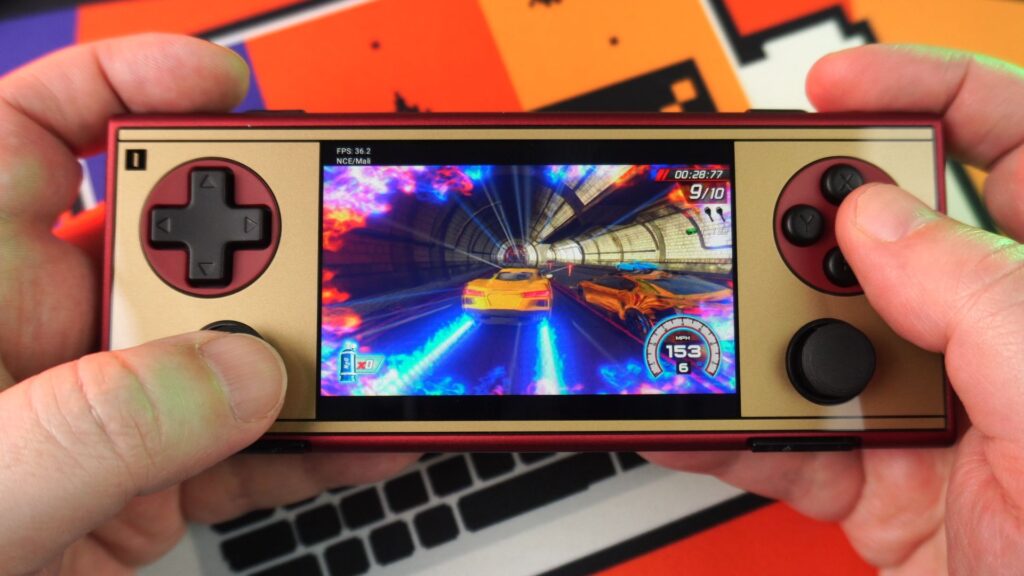
Vita3K
Our go to trippy game TxK on the Vita3K emulator ran perfectly and we could increase the rendering resolution to 2x. With Street Fighter X Tekken we had to run at normal resolution and overall we saw good frame rates with some occasional caching lags, impressive!
Yuzu
Our last emulator is the now discontinued YuZu emulator. At 1x resolution on Cruisn’ Blast it was averaging around 30 to 40 frames per second, which given the processor is very good. If you lower the resolution to half, then we can get as high as 50 frames per second. Don’t expect many games to play this well, but you can get some decent results from lower demanding games.
Final Thoughts
Time to sum up our thoughts in our AYANEO Pocket Micro review. Before I got my hands on the AYANEO Pocket Micro I was unsure whether this would be a worthwhile Android handheld. But after spending some time with it my impressions have pushed towards it being a handheld to consider. Here is why.
Let’s first start with the performance. Despite having a lower end processor, it actually does a great job! We saw good performance in the benchmarks, though not as good as the lower cost Anbernic RG Cube. But when actually running emulators we saw decent performance for PS2, Citra and YuZu, and great results with Vita3K.
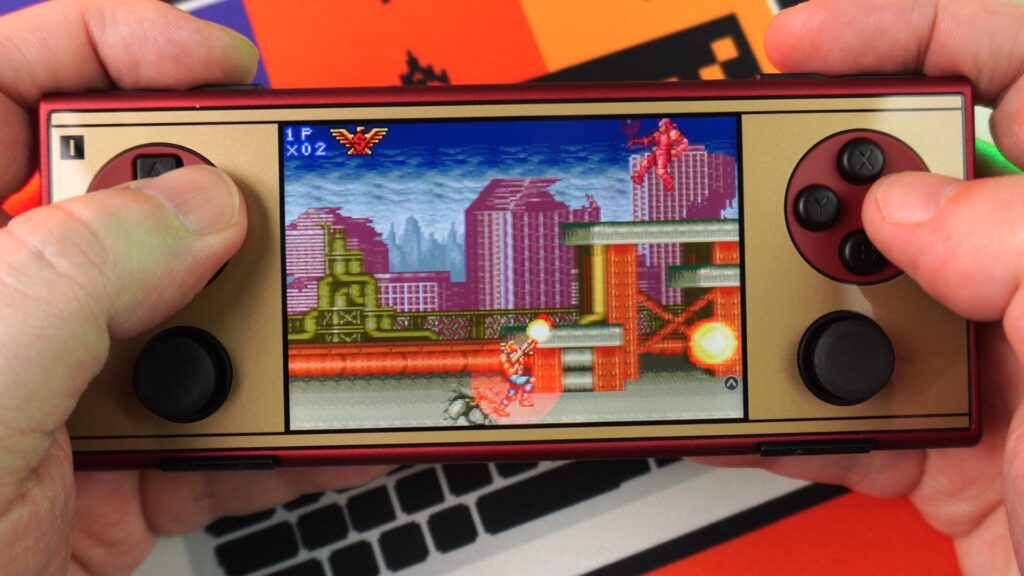
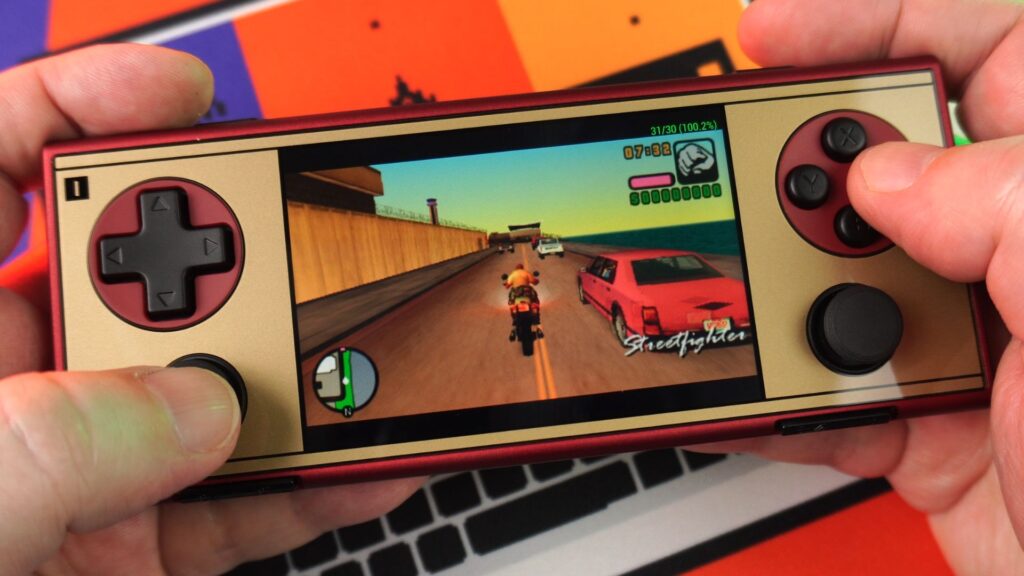
The more premium quality in terms of look and feel is what sets the AYANEO Pocket Micro apart from the Anbernic RG cube. We have a CNC aluminium alloy frame on the Micro, compared with a plastic shell on the Cube. You also have the AYA software which works very well and looks great.
One thing I do need to mention is the screen size, at 3.5”, it is on the small side. While setting up all the emulators and playing some games I did find it hard to read some text, especially on the more modern emulated systems. When you get to a certain age, your eyes don’t cope so well with small screens and small text. So it’s something to be aware of and you may want to opt for a larger display.
With these in mind we can recommend the AYANEO Pocket Micro for your older retro gaming requirements, say up to PlayStation era. And for newer systems your results may vary in terms of performance, but there’s definitely scope to enjoy them if your eyesight allows it. And the size and form factor is great for a jacket pocket or bag in terms of portability. If you are in the market for a premium pocketable Android handheld for some retro gaming, the AYANEO Pocket Micro is an excellent option!
You can learn more about and buy your AYANEO Pocket Micro here.
That wraps up our AYANEO Pocket Micro review. If you have any questions about it please feel free to ask in the comments below and we will be happy to answer.





